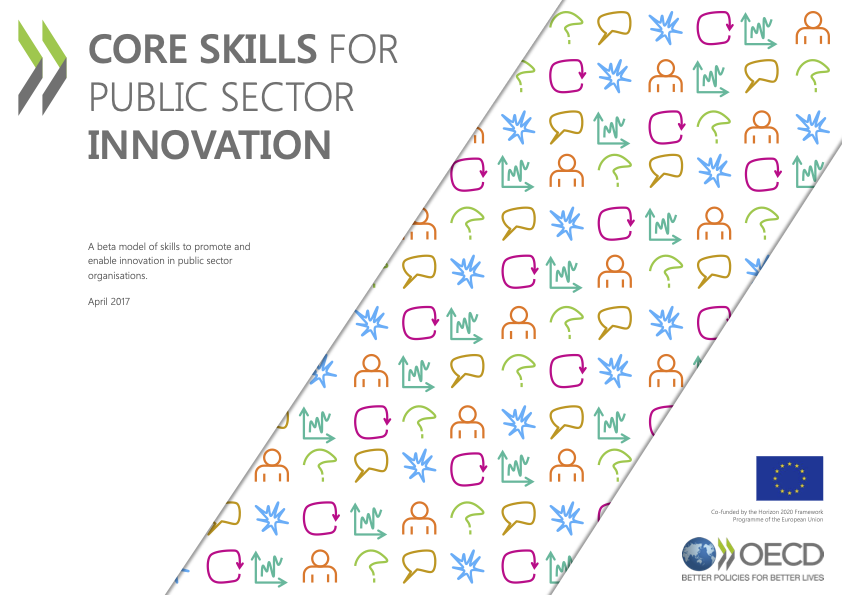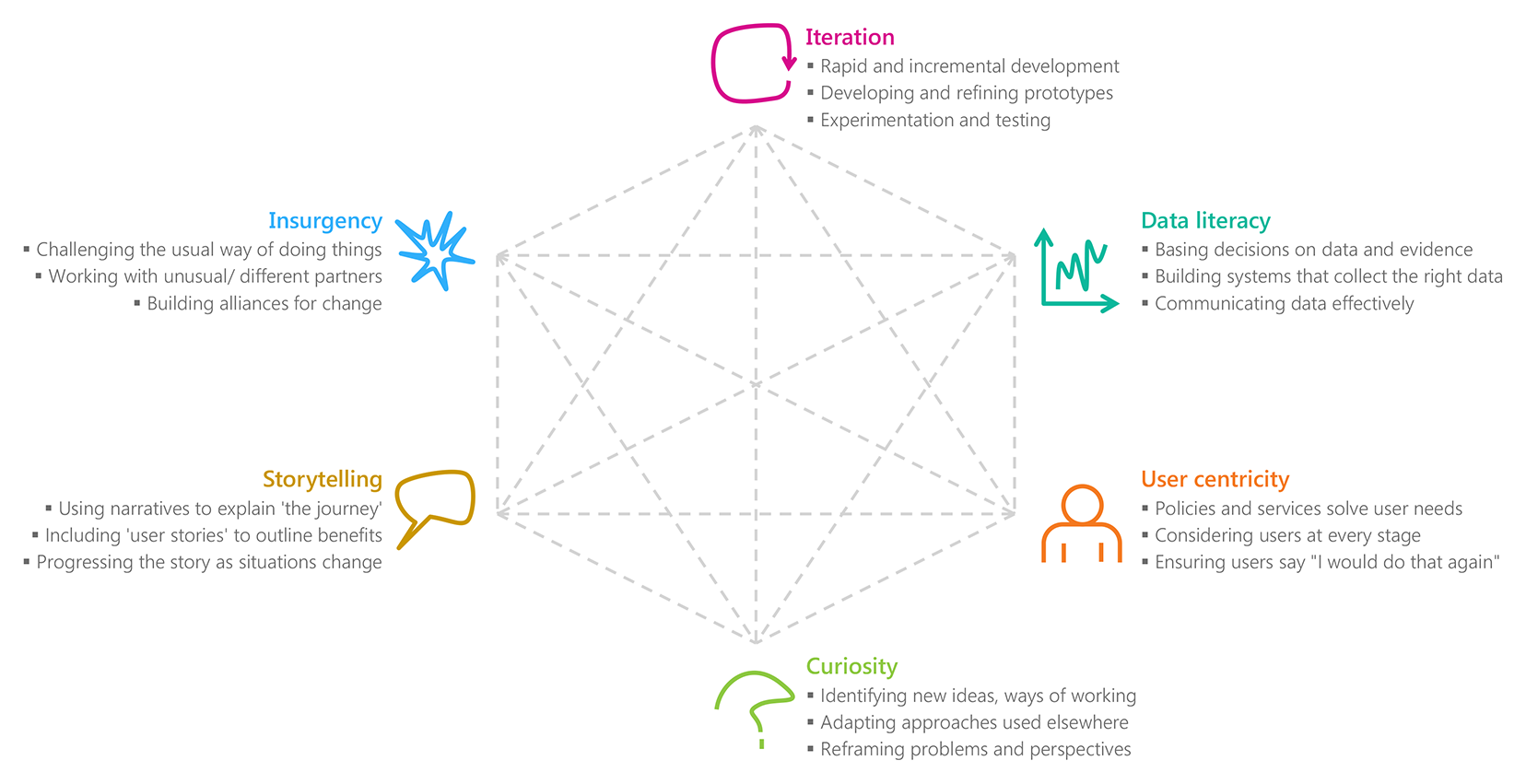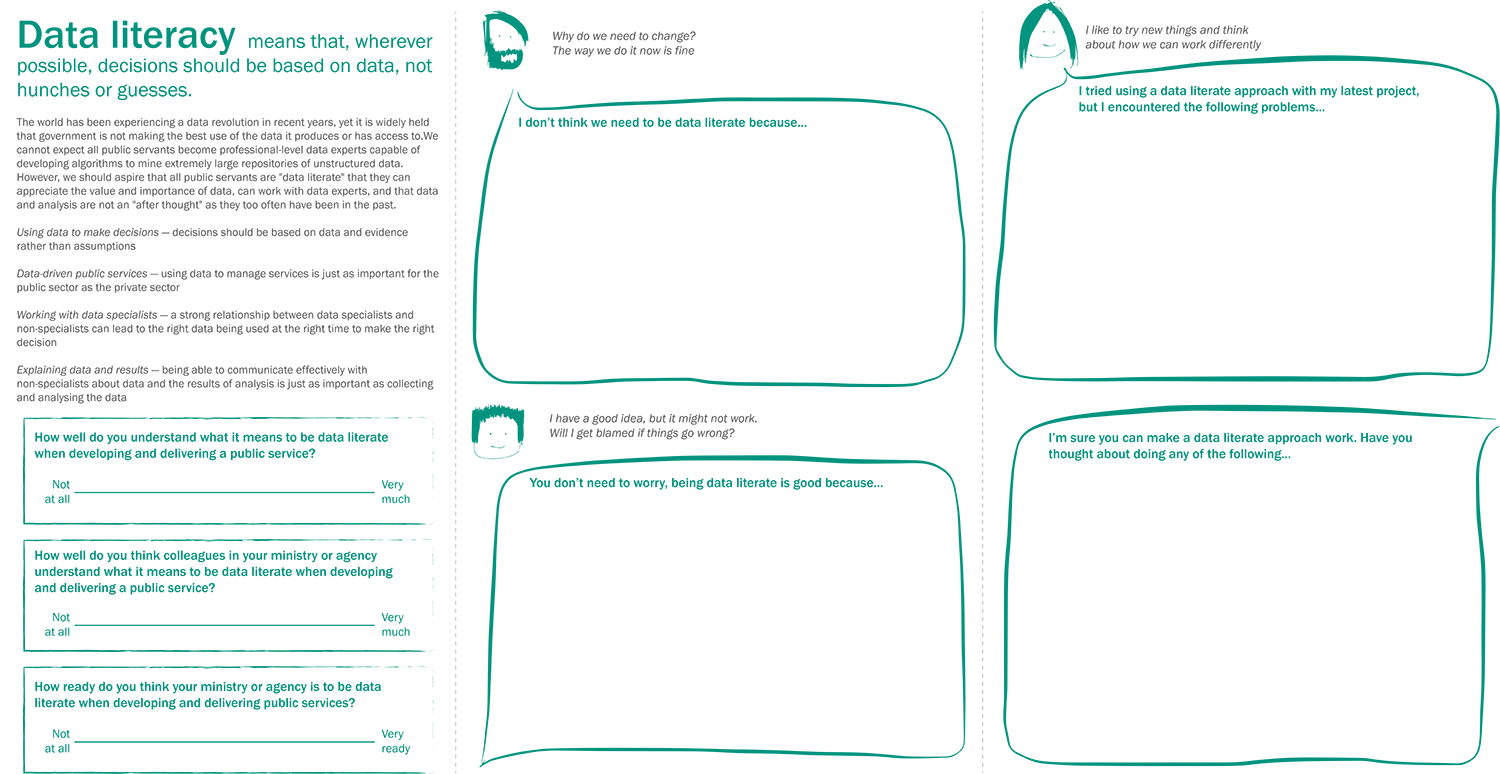Skills for public sector innovation
Developing the OECD Observatory of Public Sector Innovation's model of core skills for public sector innovation.

About this project
I worked at the Organisation for Economic Cooperation and Development (OECD) from June 2016 to July 2017 where I worked in the Public Governance Directorate’s Observatory of Public Sector Innovation (OPSI) as a policy analyst specialising in skills and capabilities for public sector innovation.
The OPSI 2015 publication The Innovation Imperative in the Public Sector1 set out a framework for thinking about innovation in the public sector with four pillars: ways of working; rules and processes; knowledge; and, people. The people pillar was further split into three aspects: culture and values; leadership and engagement; and, skills. Following a joint workshop of the OPSI’s group of National Contact Points and the OECD Public Governance Committee’s Working Party on Public Employment and Management in May 2016, the OPSI was tasked with developing a “practical tool which identifies specific skills needed for public managers to handle innovation projects”2.
A model of six core skills for public sector innovation
Initial work for the OPSI by Nesta produced a mapping over more than 40 attributes associated with innovation skills and capabilities. Based on this initial mapping (an “alpha” model of skills for public sector innovation), further literature reviews and interviews with public servants I developed a “beta” model of core skills for public sector innovation with six core skills for public sector innovation:
- Iteration: incrementally and experimentally developing policies, products and services.
- Data literacy: ensuring decisions are data-driven and that data isn’t an after thought.
- User centricity: public services should be focussed on solving and servicing user needs.
- Curiosity: seeking out and trying new ideas or ways of working.
- Storytelling: explaining change in a way that builds support.
- Insurgency: challenging the status quo and working with unusual partners.

The six core skills for public sector innovation
The model was designed similarly to the competency frameworks often used by governments and professional organisations for describing the skills and capabilities expected of staff3. As such each of the six core skills was broken into four elements, which were then described at three capability levels:
- Basic awareness: developing a general understanding of what practice of each element of the skill is about and how it applies in a public sector context.
- Emerging capability: outlining how the skills can be applied in either an occasional fashion or in a “low intensity” manner.
- Regular practitioner: shows how each element can be adopted in a deeper and/or more systematic way, to support a vision of “officials becoming innovators”.
A workshop design for exploring attitudes and experiences of using the core skills
In interviews, workshops and other discussions providing feedback during the development of the model of core skills the topic of barriers to using innovation skills came up almost as often as discussion about the skills themselves. These barriers ranged from institutional issues (such rules and procedures), culture and leadership, or their own personal reluctance to use new or different skills.
I realised that purely defining the model of skills or providing profiles of innovation practitioners using these skills would be insufficient to enable promotion and adoption of these skills. Therefore I designed a workshop format that provides a structured way for organisations to explore the various issues and opportunities presented by each of the six core skills for public sector innovation. The workshop outputs then act as a resource to inform further thinking and activity on implementing innovation skills. The workshop was designed around six activity sheets (one per skill area).
The first task is to conduct a ’temperature check’ exercise to gauge participants own comfort with the skill area and perceptions about their colleagues/organisation, discussing experiences (if any) of using the skill set, positive benefits as well as concerns/barriers. The second task uses three colleague personas to explore specific issues associated with putting the particular innovation skill into practice:
- A colleague that doesn’t think using innovation skills is necessary, to identify arguments about why we don’t need to use these skills.
- A colleague that is interested in using innovation skills but is worried about using them, to consider how we can encourage them to use innovation skills.
- A colleague that has tried to use these innovation skills but run into difficulties; firstly, to identify what barriers those might have been; and secondly, to identify how to overcome these barriers.

Core skills workshop poster
The model of core skills for public sector innovation is available on the OECD OPSI website along with a blog post about the development of the model and a blog post about the skills workshops.
OECD (2015) The Innovation Imperative in the Public Sector, Paris, Organisation for Economic Cooperation and Development, doi:10.1787/9789264236561-en ↩︎
This work was funded by the European Union’s Horizon 2020 research and innovation programme under grant agreement No 671526, https://cordis.europa.eu/project/id/671526 ↩︎
For example, the UK’s Civil Service Competency Framework (2012). ↩︎